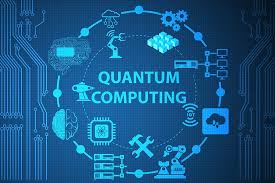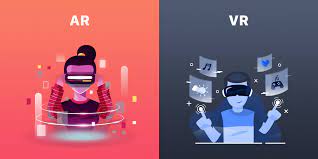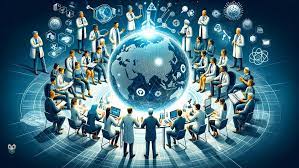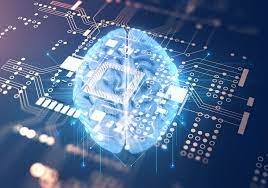The Future of Technology
technicalThe future of technology holds advancements in areas like artificial intelligence, quantum computing, biotechnology, renewable energy, space exploration, and more. These innovations are likely to reshape industries, improve efficiency, and enhance our daily lives in ways we can’t fully predict yet.
Here are some key points explaining the future of technology in more depth:
1. Artificial Intelligence (AI):
- AI is poised to continue its rapid advancement, impacting various sectors such as healthcare, finance, transportation, and entertainment.

- Deep learning techniques, reinforcement learning, and neural networks will become more sophisticated, enabling AI systems to learn and adapt in complex environments.
2. Quantum Computing:
- Quantum computers have the potential to revolutionize computational power, solving problems that are currently intractable for classical computers.

- Quantum supremacy, achieved by surpassing the capabilities of classical computers, will mark significant milestones in this field.
3. Biotechnology:
- Advances in biotechnology, including gene editing (e.g., CRISPR), personalized medicine, and synthetic biology, will transform healthcare and agriculture.

- The ability to edit and manipulate DNA could lead to breakthroughs in treating genetic diseases and developing more resilient crops.
4. Renewable Energy:
- Continued innovation in renewable energy sources such as solar, wind, and hydroelectric power will drive the transition towards a more sustainable future.

- Energy storage technologies, like advanced batteries and hydrogen fuel cells, will become increasingly important for storing and utilizing renewable energy efficiently.
5. Internet of Things (IoT):
- The IoT ecosystem will expand with interconnected devices becoming more prevalent in homes, cities, industries, and infrastructure.

- 5G and beyond will provide the high-speed, low-latency connectivity needed to support a vast network of IoT devices.
6. Space Exploration:
- Private space companies, alongside government agencies, will push the boundaries of space exploration, with missions to the Moon, Mars, and beyond.

- Technologies such as reusable rockets, in-situ resource utilization, and advanced propulsion systems will make space travel more accessible and sustainable.
7. Augmented Reality (AR) and Virtual Reality (VR):
- AR and VR technologies will continue to evolve, transforming how we interact with digital content and the physical world.

- Applications will range from immersive gaming and entertainment to practical uses in education, training, and remote collaboration.
8. Cyber Security and Privacy:
- As technology becomes more integrated into our lives, ensuring cyber security and protecting privacy will be paramount.

- Advances in encryption, bio-metrics, and AI-driven security measures will be crucial for safeguarding data and digital infrastructure.
9. Ethical and Societal Implications:
- As technology progresses, addressing ethical concerns and ensuring equitable access will be essential.

- Discussions around AI ethics, data privacy, job displacement due to automation, and digital divide issues will continue to shape the development and deployment of technology.
10. Collaboration and Interdisciplinary Research:
- Many of the future technological breakthroughs will come from interdisciplinary collaboration, as experts from diverse fields work together to tackle complex challenges.

- Cross-disciplinary research in areas such as nanotechnology, bioinformatics, and materials science will drive innovation and discovery.
Overall, the future of technology holds immense potential to transform society, improve quality of life, and address global challenges, but it also raises important questions about responsibility, ethics, and the future of work.
Posted by: tec-mahi, https://www.tecmahi.com on 19 May 2024.
